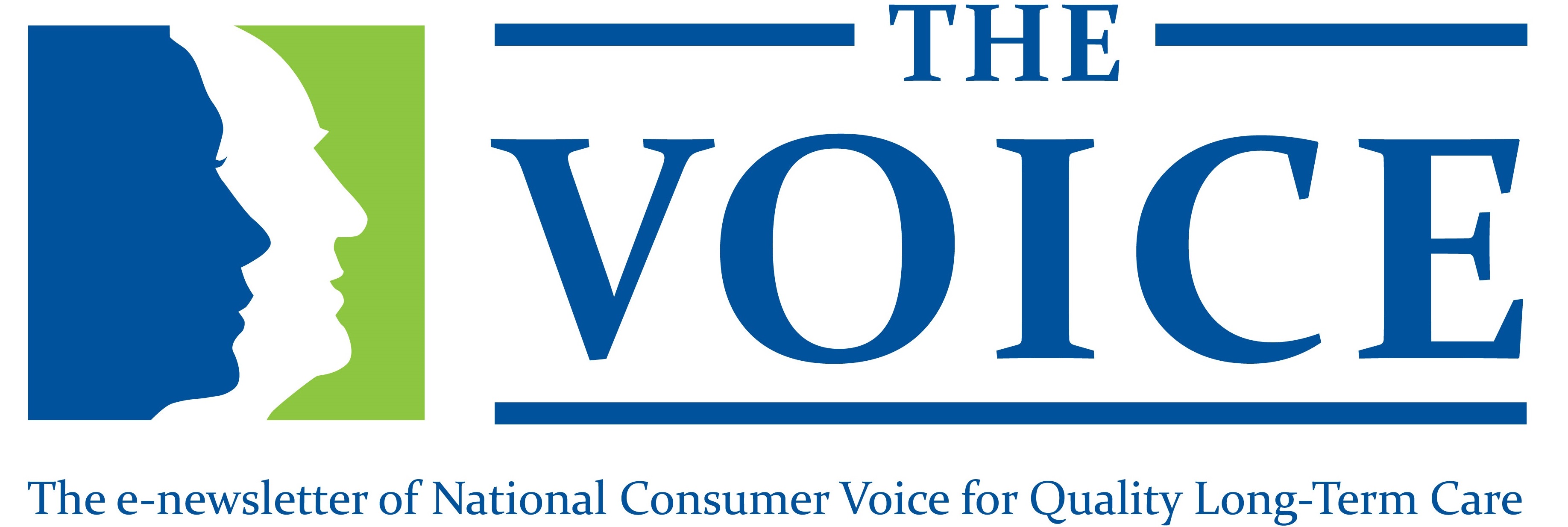|
CDC Guidance Includes Information about When Nursing Home Residents are Required to Quarantine
On March 29th, the Centers for Disease Control and Prevention (CDC) updated their guidance regarding infection prevention and control to prevent COVID-19 spread in nursing homes. It includes important information about when nursing home residents are required to quarantine. Tomorrow, Consumer Voice will release a new summary of the circumstances and factors that require residents to quarantine. Find the CDC guidance here: https://www.cdc.gov/coronavirus/2019-ncov/hcp/long-term-care.html
|
|
Most Recent CMS Guidance on Visitation: Summary and Key Takeaways
On March 10, 2021, the Centers for Medicare and Medicaid Services (CMS) issued revised visitation guidance. The guidance eases some of the restrictions on general indoor visitation while maintaining much of the guidance from September 17, 2020.
Highlights include:
- Facilities should allow indoor visitation at all times and for all residents except in certain specific circumstances.
- There are now fewer circumstances under which indoor visitation can be completely suspended.
- Fully vaccinated residents can have close contact, including touch, with visitors as long as they wear a mask and practice hand hygiene.
- Visitors should not be required to be tested or vaccinated as a condition of visitation.
- CMS continues to emphasize that facilities shall not restrict visitation without a reasonable clinical or safety cause and that nursing homes must facilitate in-person visitation consistent with the federal nursing home regulations.
- Visitation must be person-centered and “consider the resident’s physical, mental, and psychosocial well-being, and support their quality of life.”
Find our full summary along with our key takeaways and concerns.
|
|
New Podcast Episode: The Care of Individuals with Dementia
A new episode of the Pursuing Quality Long-Term Care podcast is now available. When the needs of residents living with dementia are met, incidences of resident stress are significantly reduced. Practicing person-centered approaches and interventions increase the likelihood that the message being communicated by the resident will be heard and addressed, leading to better outcomes and more satisfaction for the individual. In this episode of the Pursuing Quality Long-Term Care podcast, Dr. Jonathan Evans discusses this topic with Lori Smetanka of Consumer Voice.
Listen on Apple Podcasts, SoundCloud, Facebook, or our website.
|
|
Third Round of Economic Impact Payments Delivered
The IRS has begun delivering the third round of Economic Impact Payments via direct deposit and through the mail as a check or debit card. Individuals with adjusted gross incomes up to $75,000 ($112,500 for Head-of-Household and $150,000 for married couples filing jointly) are eligible for the full stimulus payment in the amount of $1,400 each and $1,400 for each dependent, including adult dependents, for the first time. The amount of the stimulus payment phases out to zero for individuals making $80,000 or more ($120,000 for Head-of-Household filers, $160,000 for married couples).
Individuals who live in skilled nursing facilities, assisted living facilities, and other institutional settings are also eligible to receive the payments. Recipients of Social Security (retirement, survivors, and disability benefits), Supplemental Security Income (SSI), railroad retirees, and those receiving Veterans benefits will begin to receive their payments automatically on April 3rd, with the majority of the payments to be sent electronically on April 7th.
Stimulus payments do not affect eligibility for federal means-tested programs like Medicaid and SSI. Because these payments are treated like tax refunds, they are not counted as income, and they are not counted as resources for a period of 12 months from receipt.
More information from the National Center on Law & Elder Rights: Nursing Home Residents, Medicaid, and Stimulus Checks: What You Need to Know.
|
